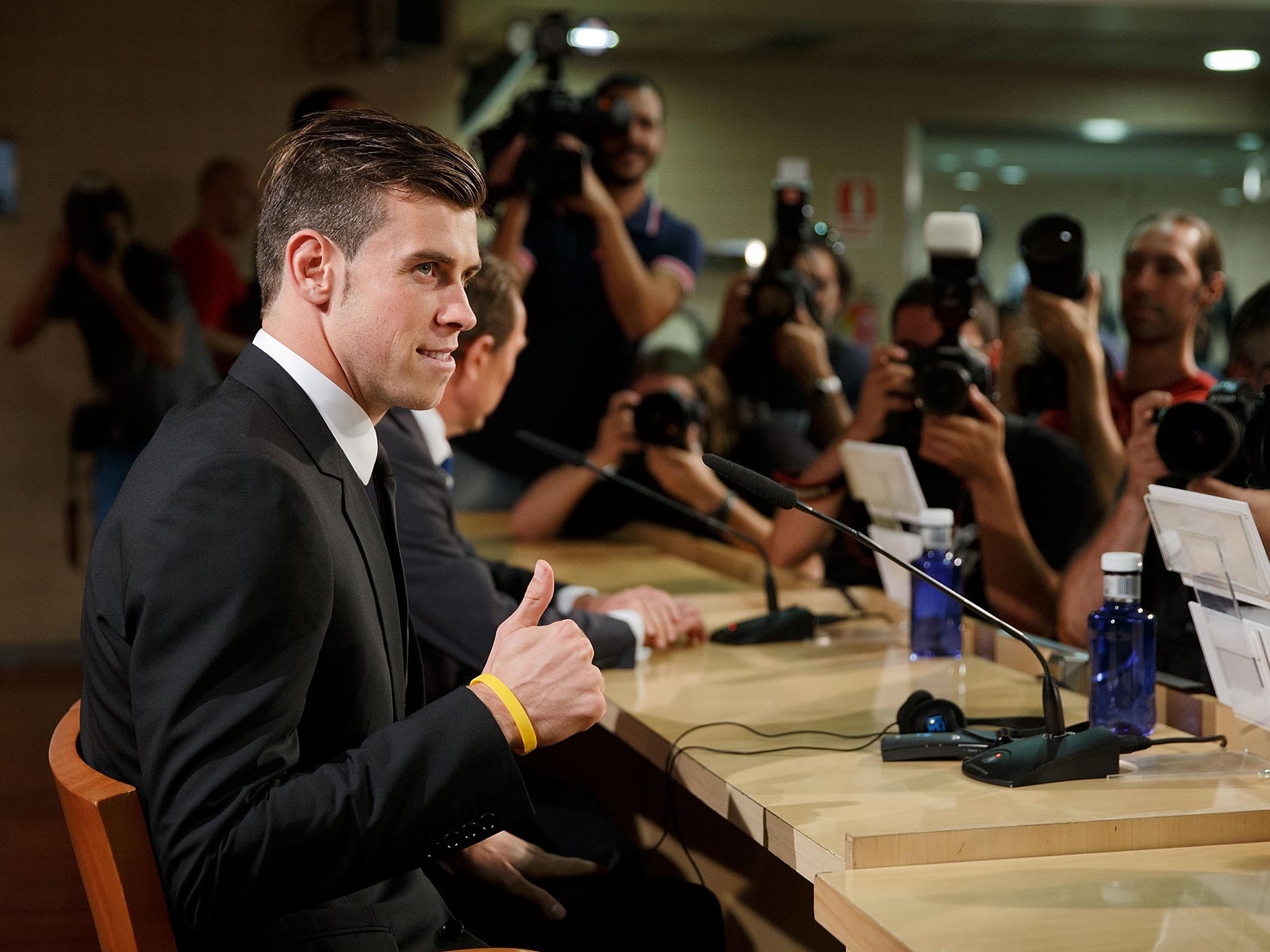Gareth Bale, his £85m transfer deal, and how Real Madrid ruined football for fans
As the dealing reaches fever pitch, Borrusia Dortmund show you can join football's big boys without buying success

Your support helps us to tell the story
From reproductive rights to climate change to Big Tech, The Independent is on the ground when the story is developing. Whether it's investigating the financials of Elon Musk's pro-Trump PAC or producing our latest documentary, 'The A Word', which shines a light on the American women fighting for reproductive rights, we know how important it is to parse out the facts from the messaging.
At such a critical moment in US history, we need reporters on the ground. Your donation allows us to keep sending journalists to speak to both sides of the story.
The Independent is trusted by Americans across the entire political spectrum. And unlike many other quality news outlets, we choose not to lock Americans out of our reporting and analysis with paywalls. We believe quality journalism should be available to everyone, paid for by those who can afford it.
Your support makes all the difference.The die is cast. The world transfer record has been broken. It has been broken before and it will be broken again, but for now Gareth Bale, a teetotal Welshman with a fear of spiders and a fondness for holidaying with his mum in Cardiff, takes the headlines.
His price: a mere £85m (€100m) without taking into account weekly wages and additional undisclosed bonuses. But what does this egregious sum say about the state of the football transfer window? In truth, it has less to do with the dynamic of the diminutive 24-year-old midfielder and more to do with the footballing behemoth that bought him, Real Madrid.
Real are the richest football club in the world. Forbes this year found that they had taken that position from Manchester United, totting up that they had an annual turnover of €513m (£434m) and a total worth of €3.3bn (£2.8bn).
Big money means big transfers and it is no surprise that Real have set the transfer record this summer. In fact, it’s the fifth time they have been named the biggest football spenders on the planet. They first set the record in 2000 with the signing of Luis Figo for £37m, then beat their own record one year later by signing Zinedine Zidane from Juventus for £45.6m. Then in 2009 the signings got silly. They landed Brazilian star Kaka from AC Milan for £56m (he has just been sent back as a free transfer), while also coughing up £80m for Manchester United’s Cristiano Ronaldo: a combined spend of £136m.
Real have long been giants of European football. They were Franco’s favourite team during the Fascist era and both Spain’s capital and its football team were made – probably unwillingly – the military leader’s propaganda tool and plaything before the dictatorship was overthrown. Yet, long since the football club have distanced themselves from associations with the Fascist leader, they still act as the strongman of European football: setting the agenda in terms of aggressive playing style, a hyper-devoted fanbase and, most importantly, unparalleled spending.
So great has Madrid’s influence been in the transfer market this summer that whole teams have been thrown into disarray in order to work around the Spanish club’s inordinate spending. Tottenham have smashed their own transfer record – spending over £90m on a selection of new players proposed to fill the gap left by Bale. Meanwhile, elsewhere in north London, Arsenal manager Arsène Wenger criticised Real’s exorbitant spending, claiming it made a mockery of Financial Fair Play rules. Appropriately, Wenger then found himself a victim of Real’s mega-money approach to purchases and sales, failing to capture Argentinian striker Gonzalo Higuain because he couldn’t bear to stump up Real’s £34.5m asking price.
And yet, the feeling now – even with the habitually intransigent Wenger – is that Real’s big-buck dealing is the only way to survive, or at least have a chance of competing, in the transfer market. Arsenal have finally capitulated. They bought Real's German midfielder Mesut Ozil for £42.4m - shattering their own record.
The message? If you can’t beat them, at least try spending as much as them. The irony? If you can afford to spend big it still might not make the difference. But as the old footballing cliché goes, it's the points, not pounds, that count. A truism acted out beautifully by Champions League finalists Borrusia Dortmund: a team whose rise seems all but unstoppable (they beat Real in the Champions League semi-final last year), yet whose overall worth puts them as only 13th on the list of Forbes’ biggest spenders. There’s hope for penny-pinchers yet.
Join our commenting forum
Join thought-provoking conversations, follow other Independent readers and see their replies
Comments